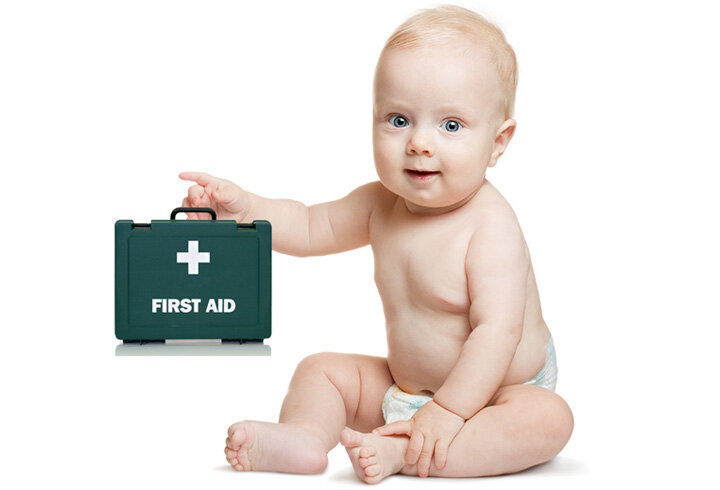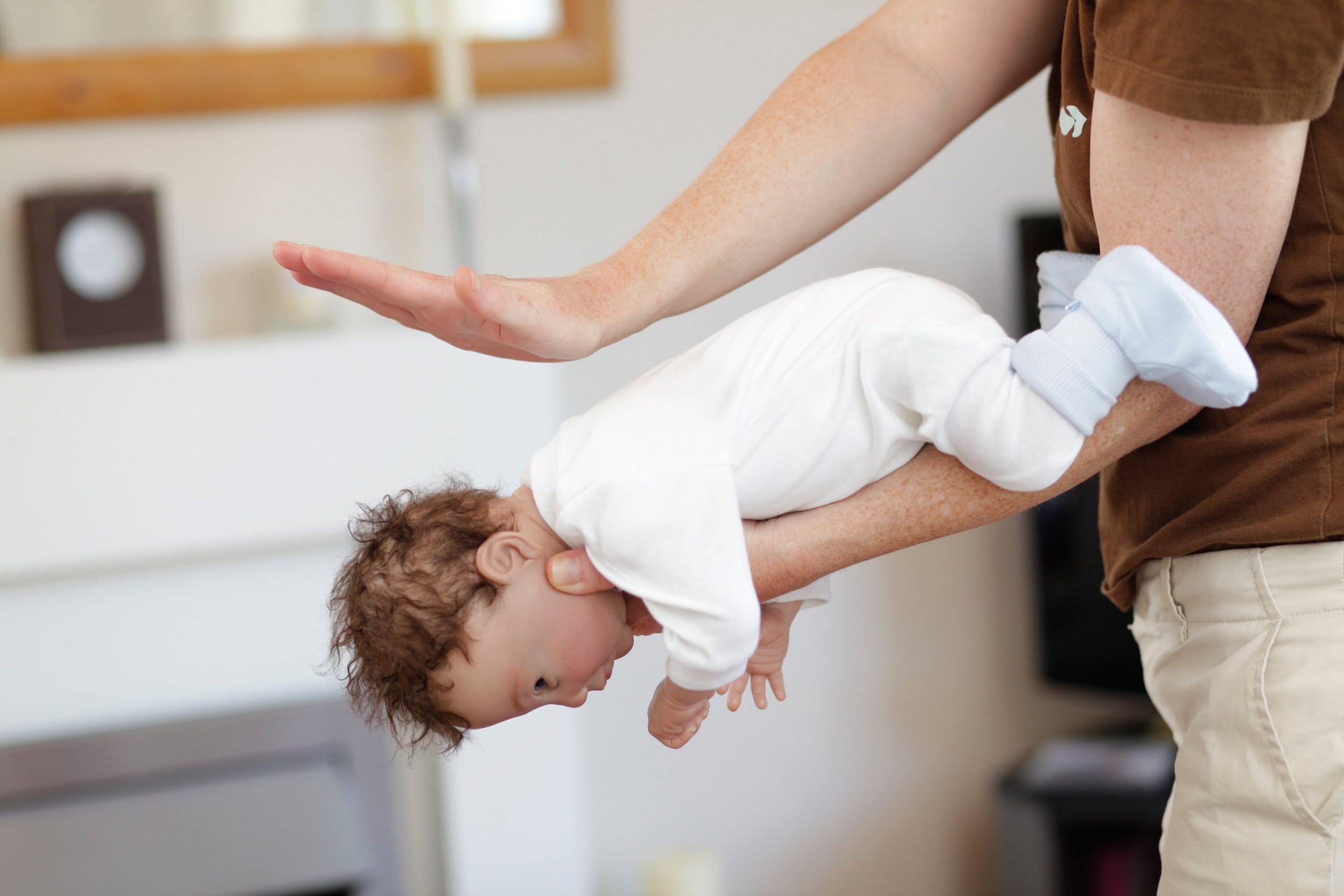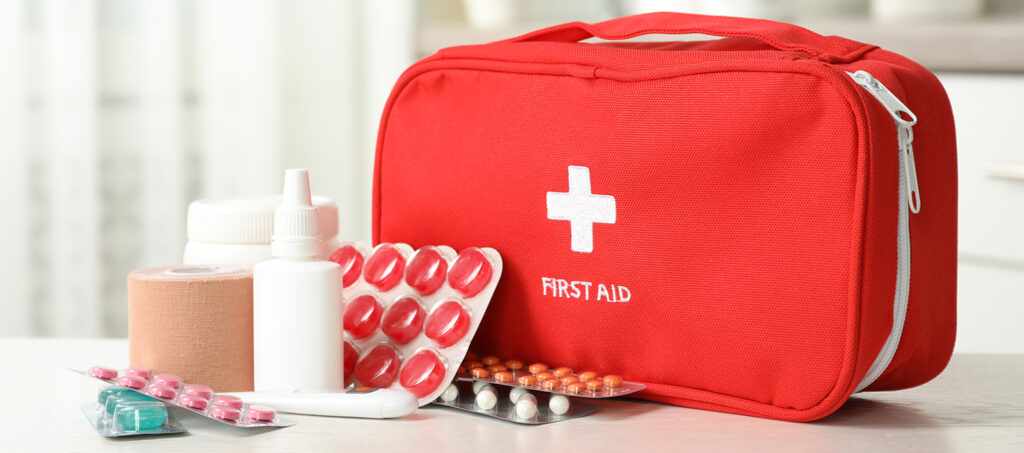
In the first few years of a child’s life, emergencies can arise at any time. From sudden choking to unexpected falls, infants are highly vulnerable. While no one wants to imagine their baby in danger, being unprepared can turn a minor incident into a life-threatening situation. This guide will help you understand the basics of first aid for babies, with a special focus on practical guidance for parents and caregivers. Read on to know what to do in an emergency, you can save a life. Whether you are a parent, grandparent, or nanny, these life-saving techniques will empower you to act confidently during critical moments.
Babies are curious and active, often before they are physically stable. They can grab objects, roll over unexpectedly, or put small items in their mouths. These natural behaviors make them more prone to accidents like choking, burns, and falls. According to the Mayo Clinic and the Cleveland Clinic, timely and correct first aid can drastically reduce the severity of injuries and improve outcomes. In fact, immediate response within the first few minutes often determines whether a baby recovers quickly or faces long-term complications.
In the UAE, where many households employ nannies or babysitters, ensuring that all caregivers are trained in baby first aid is essential. Home healthcare providers in Dubai and Abu Dhabi have begun offering pediatric emergency training, recognizing the importance of such skills in home settings.
A baby-specific first aid kit should include:
Many UAE pharmacies and online platforms offer pre-assembled kits tailored for infants. Always check expiration dates and update your kit regularly.
The answer is simple: anyone who takes care of your baby. This includes parents, grandparents, nannies, babysitters, and daycare providers. Courses offered by the Red Cross, Dubai Health Authority (DHA), and other certified training centers provide hands-on skills in pediatric CPR, managing allergic reactions, and dealing with injuries like burns or cuts. Training usually includes video modules, in-person practice, and official certification.
Research from PubMed Central highlights that caregivers with formal first aid training responded faster and more accurately in emergency simulations. The investment in training is small compared to the value of a child’s safety.

Accidents can happen anywhere your baby spends time. This includes your home, the nanny’s place, parks, daycare centers, or even cars. In a region like the UAE, where families travel often and outings are common, portable readiness is key. Here are some common scenarios:
Understanding these contexts can help you prepare specific action plans for different locations.

Choking is among the most common and terrifying emergencies in infants. According to Johns Hopkins Medicine, if a baby cannot cough, cry, or breathe, it’s a sign of complete airway obstruction.
What to Do:
Never try to remove an object with your fingers unless you can clearly see it.
If a baby is not breathing or has no heartbeat:
Steps:
Use the rhythm of a familiar song like “Stayin’ Alive” to time compressions.
Babies have sensitive skin. A hot cup of tea, boiling water, or even a hair straightener can cause serious burns.
Treatment:
Steps:
Febrile seizures due to high fever are common in babies under five years.
What to Do:
If the baby is unresponsive but breathing, put them in the recovery position and monitor until help arrives.
Common allergens include dairy, peanuts, eggs, and certain medications.
Signs:
If symptoms appear, seek emergency care immediately. If your baby has been prescribed an epinephrine auto-injector, use it right away.
Call your local emergency number (998 in the UAE) if:
Be ready to explain what happened, when it started, and what actions you’ve taken so far. Keep emergency contacts and your baby’s medical information in one easily accessible place.
| Emergency | What to Do | Who to Involve | Where It Happens | When to Act | How to Respond |
|---|---|---|---|---|---|
| Choking | Back blows and chest thrusts | Parent or nanny | Home or feeding time | Immediately | Repeat until object is cleared |
| No breathing | Infant CPR | Parent or nanny | Anywhere | Instantly | 30 compressions and 2 breaths |
| Burns | Cool water and clean dressing | Parent and hospital | Home or kitchen | Right away | No creams or oils |
| Bleeding | Apply pressure and elevate | Parent | Home or play areas | Instantly | Press for at least 5 minutes |
| Seizures | Lay on side and call for help | Parent and EMS | Anywhere | At onset | No restraint or food or drink |
| Allergies | Epipen if prescribed and call 998 | Parent and EMS | During eating or medication | Immediately | Inject epinephrine and call emergency |
Emergencies are scary, especially when it comes to babies. But being equipped with the right knowledge and skills transforms fear into action. Parents, nannies, and caregivers in the UAE have access to resources, training, and support that can truly save lives. By preparing a baby first aid kit, attending certified training, and understanding the most common emergencies, you are not just a caregiver,you are a first responder for your little one.
Invest in baby first aid training today. It’s one of the best ways to ensure your baby’s safety, whether at home or on the go.
1. What should I do if my baby starts choking while eating?
If your baby cannot breathe, cry, or cough, begin back blows followed by chest thrusts immediately. Lay the baby face down along your forearm, give 5 firm back blows, then turn and give 5 chest thrusts. Repeat until the airway is clear or help arrives.
2. How do I perform CPR on an infant under one year old?
Place the baby on a firm surface, use two fingers for 30 gentle chest compressions in the center of the chest, followed by two small rescue breaths. Continue this cycle until emergency services arrive or the baby starts breathing.
3. What should be included in a baby first aid kit?
Your infant first aid kit should contain a digital thermometer, baby-safe antiseptic wipes, sterile gauze, infant paracetamol, bandages, tweezers, nasal saline, and emergency contact numbers.
4. Can nannies and babysitters get certified in infant first aid in the UAE?
Yes. Many certified training centers across the UAE, including those approved by the Dubai Health Authority (DHA), offer infant CPR and first aid training specifically designed for caregivers and domestic helpers.
5. What are the signs of a serious allergic reaction in babies?
Symptoms include swelling of the lips or face, hives, difficulty breathing, or vomiting. Use an epinephrine auto-injector if prescribed and call emergency services (998 in the UAE) right away.
6. What is the best way to treat burns in babies at home?
Run cool water over the burn for 10 minutes, cover with a clean, non-stick dressing, and avoid applying creams or oils. Seek medical attention for large burns or those on sensitive areas like the face or joints.
7. How can I prepare for baby emergencies while traveling in the UAE?
Pack a travel-friendly baby first aid kit, carry updated medical information, and save emergency contacts like 998. Also, make sure caregivers know basic CPR and how to handle common travel issues like dehydration or motion sickness.
8. When should I seek emergency help for a baby seizure?
Call emergency services immediately if the seizure lasts more than 5 minutes, if your baby is unresponsive afterward, or if it’s their first seizure. Lay them on their side and do not put anything in their mouth.
9. Are there any online baby first aid courses in Dubai or Abu Dhabi?
Yes, many DHA-certified training centers now offer hybrid options including online theory modules and in-person practice for baby first aid and CPR. These are ideal for parents, nannies, and babysitters in the UAE.
10. How often should I update my baby’s first aid supplies and training?
Check your kit every 3–6 months for expired items. Caregivers should refresh their training every 1–2 years to stay updated on first aid guidelines and emergency response techniques.
Need Help at Home? Trust Eureka’s Baby Nursing Experts
Whether you’re a new parent or want professional support for your little one, Eureka Home Healthcare offers highly trained baby nurses and nannies across Dubai. From newborn care and feeding support to specialized postnatal assistance and baby CPR-trained professionals, we bring compassionate expertise right to your doorstep.
📞 Call us now or book online to schedule your at-home baby care consultation.
Your baby deserves the safest hands,choose Eureka.
In the home setting, Nurses play an integral role in the delivery of quality healthcare services that generates trust and collaboration for both the care of the client and the maintenance of health of other family members as well.
Office 107, Business Point Building, Port Saeed, Dubai, United Arab Emirates
Mob : +971 50 3860 777
Tel : +971 4 26 68 222
© 2023 Copyright Eureka Home Health Care | Patient Rights | All rights reserved.
MOH APPROVAL # 9PSCUR9B-030724 DHA-FL-0000796